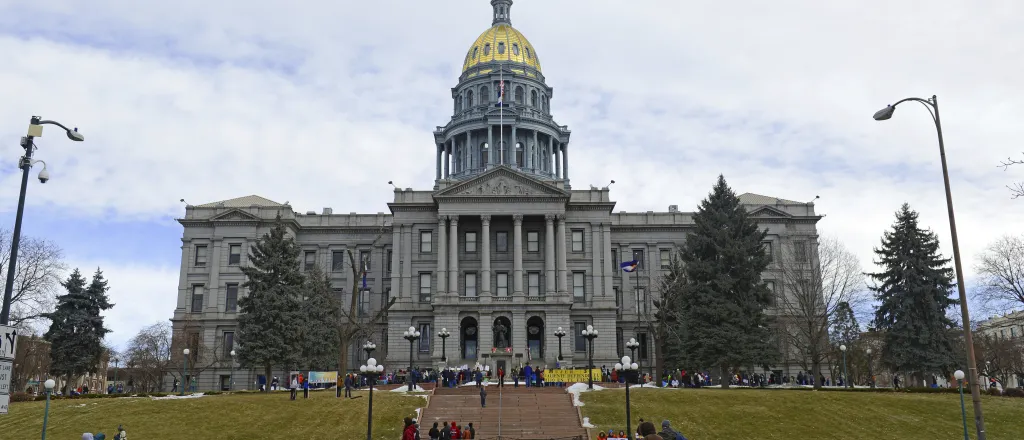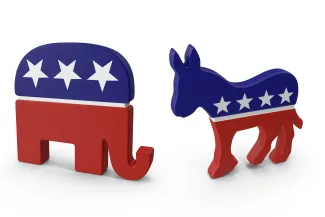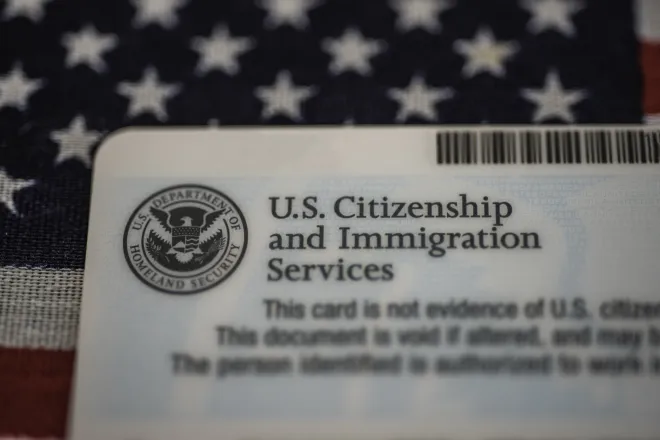
Colorado Legislature sends first set of special session bills to governor
© iStock
The first handful of bills from the special legislative session have landed on Governor Jared Polis’ desk after winning final approval from lawmakers over the weekend and on Monday morning.
The Legislature began its special session last Thursday to pass revenue-raising policies to help fill an approximately $750 million gap in the state’s budget. That hole follows the passage of the federal tax cut and spending law in July, which hit Colorado’s project tax revenue for the current fiscal year and years to come.
Democrats’ plan to rebalance the budget includes the policies passed this session to raise more tax revenue, a dip into the state’s reserve funds and a spending cut plan that the governor is scheduled to present to lawmakers later this week.
Republicans railed against the Democrat-backed bills that they see as detrimental to the state’s business community and in violation of the Taxpayer’s Bill of Rights, which mandates voter approval for tax increases. They want the state to cut expenses rather than find ways to raise more money.

© fitimi - iStock-528483210
“Why are we here talking about raising taxes on businesses, mortgaging future revenue, instead of talking about addressing the real issue? I don’t know,” Senator Lisa Frizell, a Castle Rock Republican, said on the Senate floor Monday morning. “We are continuing to punish the businesses in this state.”
The five bills focused on raising revenue would raise about $250 million in the current fiscal year by eliminating tax breaks at the state level and letting companies pre-pay taxes at a discount. Four of them were passed by the Senate on mostly party-line votes on Sunday evening and Monday morning.
House Bill 25B-1005 would repeal a provision in state law that allows retailers to keep 4 percent of their sales tax collections, sometimes referred to as a vendor fee, as a way for the businesses to cover the cost of collecting the taxes.
The bill’s fiscal note estimates it would raise $28 million in revenue for the state in the current fiscal year, and $57 million the next year.
Senator Cathy Kipp, a Fort Collins Democrat, said the tax incentive is outdated, and cutting it is necessary amid the state budget hole. Kipp also pointed to how tax code changes in the federal Republican domestic policy law primarily benefit businesses.
“Nobody wants to give up something they’ve already had, and nobody wants to be for asking people to do that,” said Senator Cathy Kipp, a Fort Collins Democrat. “It’s just that this is where we find ourselves today. But we do not genuinely pay people to pay their taxes. We do not generally pay people to comply with the law.”
Senator Lynda Zamora Wilson, an El Paso County Republican, spoke against the bill during its final debate on Monday morning, and so did several of her Republican colleagues.
“We should be incentivizing businesses, this is the time,” Zamora Wilson said. “We’ve got to make cuts. I’ll say it again and again.”
Five Democratic senators sided with Republicans in voting against it.

© JJ Gouin - iStock-1642293566
The Senate then passed House Bill 25B-1003. This would repeal a tax incentive for insurance companies that have at least 2.5 percent of their domestic employees in Colorado. The bill would raise $44 million for the state in the current fiscal year and $91 million the following year.
Finally, senators signed off on House Bill 25B-1001. This would permanently extend a requirement that high-income taxpayers who own sole proprietorships, S corporations or partnerships add back their qualified business income federal tax deductions when calculating their Colorado taxable income. It will only impact single filers who make at least $500,000 and joint filers who make at least $1 million, so business owners who earn less than that still will benefit from the deduction at the federal and state levels.
Congress made the federal deduction, which can be up to 20 percent of that “pass-through” income for business owners, permanent with its recent law. Colorado decoupled from the federal deduction for high earners in 2020.
The bill’s fiscal note estimates it would raise about $46 million in the current fiscal year and about $95 million in the next one.
On Sunday, the Senate passed House Bill 25B-1002. This bill would expand the list of countries that the state considers to be tax havens, which limits the deductions that corporations can claim on taxable income in those jurisdictions. The bill would bring in an estimated $36 million in state tax revenue for the current fiscal year, according to its fiscal note.
The bill’s Democrat sponsors have argued that the bill closes corporate tax loopholes during a time when the state budget is hurting. But Senate Republicans were wary that the bill could hurt businesses.
The Colorado Legislature sent four other bills to Governor Polis’ desk over the weekend.
The Senate signed off on amendments made in the House to a bill to redirect a small amount of money from the state’s wolf reintroduction program to the health insurance affordability fund.
- Senate Bill 25B-3 would change a referred ballot measure in November to ask voters if the state can use extra money collected for universal school meals to also cover costs related to the Supplemental Nutrition Assistance Program.
- Senate Bill 25B-2 would allow the state to pay for Medicaid services from organizations that providereproductive health care, namely Planned Parenthood, that the federal government has withheld Medicaid money from. The bill’s fiscal notes estimates it would cost Colorado a maximum of $4.4 million during the current fiscal year, which began on July 1.
- Senate Bill 25B-1 would set a process for the governor to notify and consult with the Joint Budget Committee on mid-year spending cuts needed to overcome a revenue shortfall, like the ones he is poised to do soon after this special session. The governor would be able to suspend and cut state funding, and therefore need to meet with the JBC, if the reserve needs to be tapped by up to 3 percent of the General Fund budget, or if that reserve is projected to dip below $1 billion.
No bill signings had been scheduled as of Monday afternoon.














